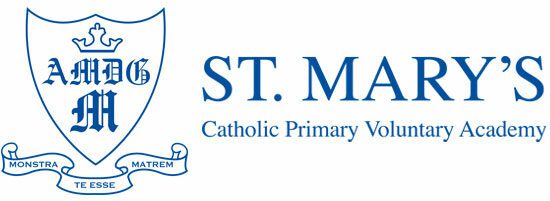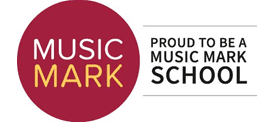Expectations
Each topic has a Knowledge Organiser to set out what is going to be taught within each unit. Knowledge organisers are a summary of the key facts and essential knowledge that pupils need about a unit of work or a curriculum subject.
Religious Education at St Marys
Religious Education at St Mary’s Catholic Academy follows the Diocese of Nottingham programme Come and See.
Come and See is an invitation to exploration and promise of life for everyone. Come and See offers the opportunity to search, to explore, to discover, and to respond; this is part of what it is to be human.
Come and See aims to raise questions and provide materials for children to reflect on their own experience. For all children the programme will raise questions of meaning and purpose and enable children to think critically, providing materials for reflecting on their own experience.
It will help them to explore the beliefs and values and the way of life of the Catholic traditions, and of other faith traditions, developing good attitudes and dispositions so that children are instilled with a ‘love of learning’ and a desire to go on learning.
Children will be offered a sense of self-worth through experience of belonging to the caring community of our school.
Each class covers 3 topics each term which link to a whole school theme. In addition to this, the children learn about other faiths and religions throughout the year.
Curriculum intent
- To present engagingly a comprehensive content that will lead our pupils to a fuller understanding of Gospel values.
- To promote the dignity and the freedom of all those who belong to our school community as being created in the image and likeness of God.
- To promote religious knowledge, understanding and skills in our children so they are able to think spiritually, ethically, theologically as is appropriate for their age and ability and be able to communicate this effectively.
- Help the children become increasingly aware of the demands of religious commitment in everyday life.
- Provide a welcoming, caring, safe Catholic environment where children can develop self-respect, integrity, a sense of individual worth so they are able to co-operate with and show consideration and tolerance for others.
- To prepare our children so they have the confidence to make a critique about the underlying trends in contemporary culture and society.
- To raise pupils’ awareness of the traditions of other religious communities in order to respect and understand them.
- To ensure that the three elements of Religious Education, Catechesis and Evangelisation co-exist, providing mutual support and reinforcement.
The process for delivering the topics in Come and See has three stages – Explore, Reveal and Respond which enable the pupils with the development of knowledge, understanding, skills and the fostering of attitudes.
10% of teaching time is dedicated to the teaching of RE.
The Process
Search – Explore (1 week) This is the introduction to the topic where the children’s life experience is explored, the questions it raises are wondered at, shared, investigated and their significance reflected on.
Revelation – Reveal (usually 2 weeks) This is the heart of the programme where knowledge and understanding of the Catholic faith is revealed through the Word, in Scripture, Tradition, doctrine, prayers, rites and Christian living.
Response – Respond (1 week) This is where the learning is assimilated, celebrated and responded to in daily life. This reflective work is collated in the class Respond scrapbooks which travel up through the school with each class.
Implemetation:
- Children walk into an R.E lesson and it instantly feels special. A key focal point (for example an artefact, candle, image to provoke thoughts) greets the children with calm music and prepares the children for the start of their learning.
- Teachers use the Come and See Programme of Religious Education as their main resource that they then develop and enhance to meet the needs of their children and create exciting and engaging lessons.
- Teachers use the parish priest and Lay Chaplain to inspire and help make their teachings come alive.
- Central to the programme are three basic human questions and the three Christian beliefs that are the Church’s response in faith:
- o Where do I come from? Life – Creation
- o Who am I? Dignity – Incarnation
Why am I here? Purpose – Redemption, within the Catholic tradition - Links are made with pupils’ own experiences and with universal experiences and other religion traditions.
- The Come and See Programme includes objectives and learning intentions which take into account the religious and educational needs of our children:
- o From supportive Catholic homes
- o For whom the school may be the first, or only, experience of church from other Christian traditions
- o From other religion backgrounds
- The programme helps the children to:
- o Raise questions
- o Provide material for reflection
- o Explore the beliefs, values and way of life of Catholic tradition
- o Deepen and enrich the understanding of their faith
Impact:
- Religious Education is the core subject central to the life of St Mary’s Catholic Academy, is given 10% of curriculum time and has the full support of management in its delivery, resourcing and development.
- It is a subject, predominantly through the delivery of the programme Come and See which respects and promotes the child’s innate capacity for wonder, awe, reverence, imagination and the spiritual.
- It is a curriculum subject in its own right; is a rigorous, academic discipline to be taught, assessed, developed and resourced with the same commitment as other curriculum subjects.
- It provides opportunities for prayer, celebration, investigation and reflection.
- It provides children with the language of religious experience in the form of religious activities, places, stories, symbols, rituals, people and objects.
- It presents systematically the Christian way of life and introduces doctrine in ways appropriate to the age and stage of development of the child.
- It provides staff with relevant in-service so that they are confident to deliver high quality teaching to support excellent pupil progress.
- It underpins all other school policies so that they reflect Gospel values and contributes positively to the broad and balanced curriculum through co-operation and dialogue with other subjects.
- It endeavours to interpret relationships in school in the light of the teachings of the church and strives to encourage and celebrate forgiveness, trust, respect and Christian love in all aspects of school life.












